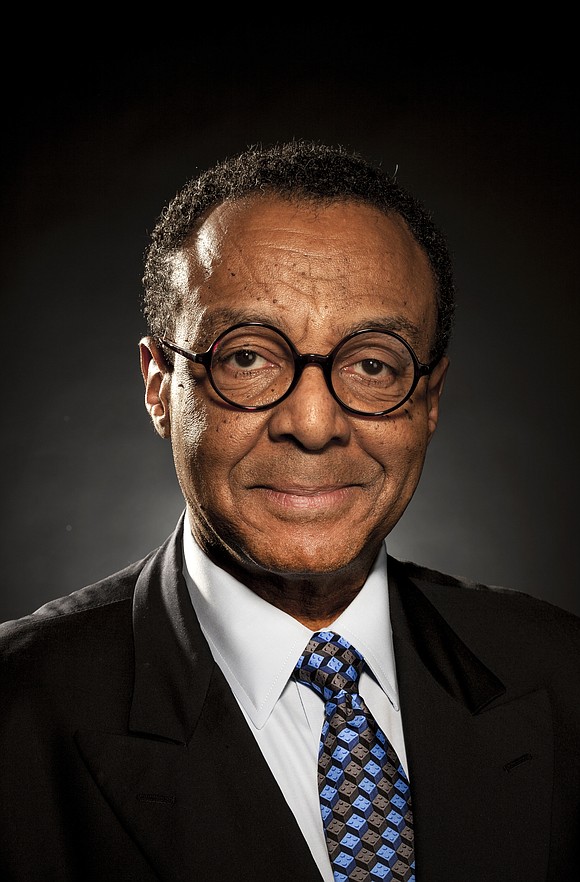Smollett’s sideshow mocks real tragedies, by Clarence Page
3/17/2022, 6 p.m.
True to his profession, actor Jussie Smollett reacted to his sentence of jail time for his hate-crime hoax, with the passion of a courtroom drama.
As he was being escorted out of the courtroom in Chicago to begin serving 150 days in custody, he seemed to call up his own inner Atticus Finch from “To Kill a Mockingbird” to say, “I am not suicidal.”
“OK,” said Judge James Linn, as sheriff’s deputies closed in to take him into custody. But Mr. Smollett repeated his declaration twice as he added that he respected the judge and his decision but, “Jail time? I am not suicidal. ... If anything happens to me in there, I did not do it to myself.”
Say what? Was this another paranoid vision dreamed up like his hate-crime hoax? Or was he reaching for martyrdom references to add a little drama before the final curtain on his misadventure?
At least he could have said he was sorry. A spoonful of contrition for the trouble he had caused at taxpayers’ expense might have helped him to avoid jail time.
Besides the five months Mr. Smollett was sentenced to serve in Cook County Jail, Judge Linn also sentenced the actor to three years of probation and ordered him to pay $130,160 in restitution to the city to cover the more than 1,000 hours in police overtime it took to investigate his false report.
In the end, the judge said jail time was warranted because of the serious damage he’d inflicted on the city as well as the true victims of hate crime.
That sounds appropriate. The whole wackadoodle scheme defied plausibility from the beginning.
The city will not soon forget how, in the frigid early hours during the polar vortex in January 2019, the now-former “Empire” star who is Black and gay claimed he had been viciously attacked. Two masked assailants yelled homophobic and racist insults and declared “This is MAGA country,” he said, as they beat and kicked him, put a makeshift noose around his neck and “poured an unknown liquid” on him before he managed to fight them off.
But even as his case sparked national outrage as a metaphor for systemic racism, it unraveled like a cheap sweater as police combed the city on a fruitless search for suspects.
Mr. Smollett’s story fell apart after two of his acquaintances, brothers Abi and Ola Osundairo, told police he had paid them $3,500 to carry out the fake attack. Unlike Mr.Smollett’s account, the brothers’ version was backed up by security camera videos.
Mr. Smollett lost his “Empire” role and in December was found guilty by a jury of five of six counts of felony disorderly conduct for filing a false police report.
“Mr. Smollett, I know that there is nothing that I will do here that will come close to the damage that you’ve already done to your own life,” Judge Linn said. “You’ve turned your life upside down by your misconduct and your shenanigans.”
True enough. His shenanigans also took public attention and valuable resources away from real violent crime that contin- ues to plague Chicago, among other cities.
Mr. Smollett’s sentencing occurred on the same day that Chicago Mayor Lori Lightfoot met with the Tribune Editorial Board to discuss, among other issues, the cost of violent crimes that have made recent headlines.
Among others, she remembered the death of Melissa Ortega, an 8-year-old girl fatally shot while walking with her mother in the Little Village community in what police described as a feud between rival gangs.
At one point, the mayor apologized and fought back tears as she remembered meeting with Little Village mothers whose children were killed by gang violence. Their tragedies reminded Mayor Lightfoot of her own family’s struggle with her older brother who, for a time, was “lost to the streets.”
No need to apologize, I said. I felt her pain. It’s heartbreaking for reporters who have to cover such tragedies year after year. Most don’t get nearly the attention of Mr. Smollett’s trumped-up case ironically because they occur so often. But that’s precisely why they should get our attention—and action.







